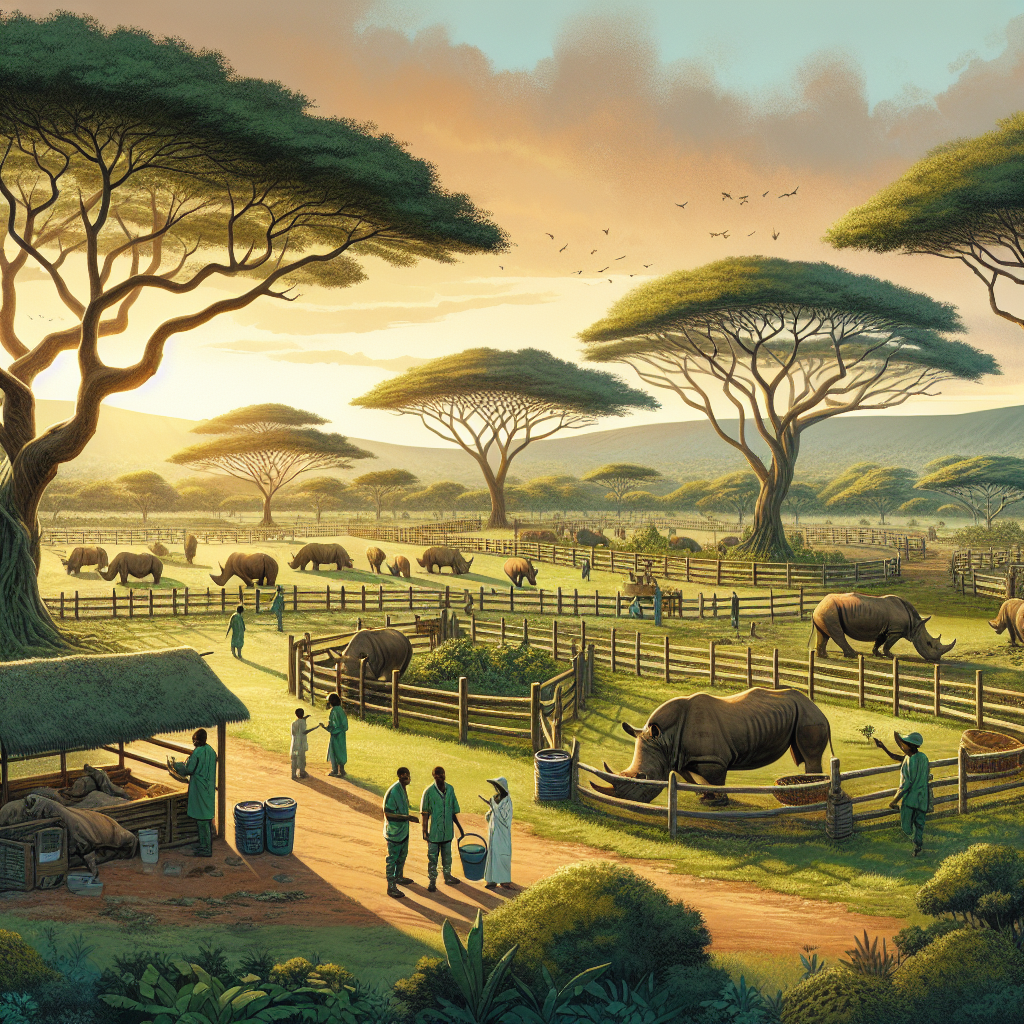Ten Black Rhinos Rewilded in Mozambique After 50-Year Local Extinction
With 37 rhinos already thriving in Zinave, this additional translocation cements the park’s status as Mozambique’s only “Big Five” national park, supporting elephant, lion, buffalo, leopard, and now black rhino.

- Country:
- South Africa
In a major step toward rewilding Africa’s endangered species, ten black rhinos—five males and five females—have been successfully translocated from South Africa to Mozambique’s Zinave National Park, re-establishing the country’s first founder population of black rhinos in over five decades. This milestone marks a turning point in wildlife conservation in southern Africa and comes after black rhinos had been locally extinct in Mozambique for 50 years.
The initiative was made possible through a collaboration between South Africa’s Ezemvelo KZN Wildlife, Mozambique’s National Administration for Conservation Areas (ANAC), and the Peace Parks Foundation, with vital funding support from the UK’s People’s Postcode Lottery.
Boosting Biodiversity in Rewilded Landscapes
The return of black rhinos to Zinave National Park is more than symbolic—it is a strategic intervention to restore biodiversity, strengthen ecological resilience, and mitigate climate change. With black rhinos acting as ecosystem engineers, their return is expected to contribute significantly to maintaining healthy savannah ecosystems and creating effective ‘carbon sinks’. Research shows that rewilded ecosystems can increase global carbon uptake by up to 12 times, thus playing a pivotal role in fighting climate change.
With 37 rhinos already thriving in Zinave, this additional translocation cements the park’s status as Mozambique’s only “Big Five” national park, supporting elephant, lion, buffalo, leopard, and now black rhino.
A Pan-African Conservation Partnership
The translocation process was rooted in careful planning and deep cooperation. Peace Parks Foundation formally requested the rhinos from Ezemvelo KZN Wildlife to strengthen the genetic diversity and numbers of Zinave’s rhino population, aiming to establish a viable breeding population. The selected rhinos came from Ithala Game Reserve and the Black Rhino Range Expansion Project (BRREP).
Before departure, the rhinos were temporarily housed in specialised bomas (holding facilities) at Hluhluwe-iMfolozi Park, where they acclimated for their journey. In what was one of the longest overland rhino translocations undertaken, the 48-hour journey to Zinave required careful logistics, veterinary oversight, and tight regulatory compliance.
Regulatory Compliance and CITES Oversight
The entire operation adhered to the Convention on International Trade in Endangered Species of Wild Fauna and Flora (CITES) regulations. South Africa’s Department of Forestry, Fisheries and the Environment (DFFE), alongside the Border Management Authority (BMA) and Environmental Management Inspectors (EMIs), oversaw every stage of the translocation process.
During loading, the EMIs ensured that all ten rhinos were properly tagged and that microchip IDs matched the records in the CITES documentation, a key measure to prevent wildlife trafficking and ensure accountability in species trade.
Conservation Milestone and Global Recognition
South Africa’s Minister of Forestry, Fisheries and the Environment, Dr Dion George, hailed the translocation as a “significant conservation success.” He noted that South Africa’s stabilised rhino populations, bolstered by robust anti-poaching and anti-trafficking efforts, now allow the country to play a critical role in supporting range States like Mozambique in rebuilding their own rhino populations.
“This successful translocation reinforces the importance of collaboration in biodiversity restoration,” said Dr George. “It is one of many interventions required to secure the future of these critically endangered animals.”
International Support Driving Impact
The People’s Postcode Lottery, whose players raised £800,000 in 2023, funded this latest phase of the black rhino rewilding initiative. The support underscores the growing role of cross-border philanthropy in addressing the global biodiversity crisis.
“Supporting the rewilding of critically endangered species like the black rhino is at the heart of what we believe in—creating lasting impact for people and planet,” said Clara Govier, Managing Director of the People’s Postcode Lottery. “This historic translocation wouldn’t have happened without our players’ contributions. It’s a powerful example of what we can achieve together to restore nature and protect our shared future.”
The Path Ahead: Safeguarding Gains and Building Resilience
The long-term vision is to transform Zinave National Park into a stronghold for rhino conservation in southern Africa. Already, the return of black rhinos is generating ripple effects—enhancing tourism appeal, stimulating local economies, and supporting regional climate goals through increased carbon sequestration.
Peace Parks Foundation and ANAC have committed to continued anti-poaching efforts, monitoring, and community engagement to ensure the rhinos’ safety and long-term viability in their new habitat.
In a world where biodiversity loss is accelerating, the return of black rhinos to Mozambique signals hope—not just for conservationists, but for communities, ecosystems, and future generations.
ALSO READ
Indian Judiciary Champions Sustainability at Climate Change Conference 2025
Mathura Leads Fight Against Climate Change with Greening and Recycling Initiatives
Cholera Outbreak in Ivory Coast: A Health Crisis Worsened by Climate Change
AI and climate change redefine global disease surveillance
Emperor Penguins on Thin Ice: Climate Change Threatens Survival










